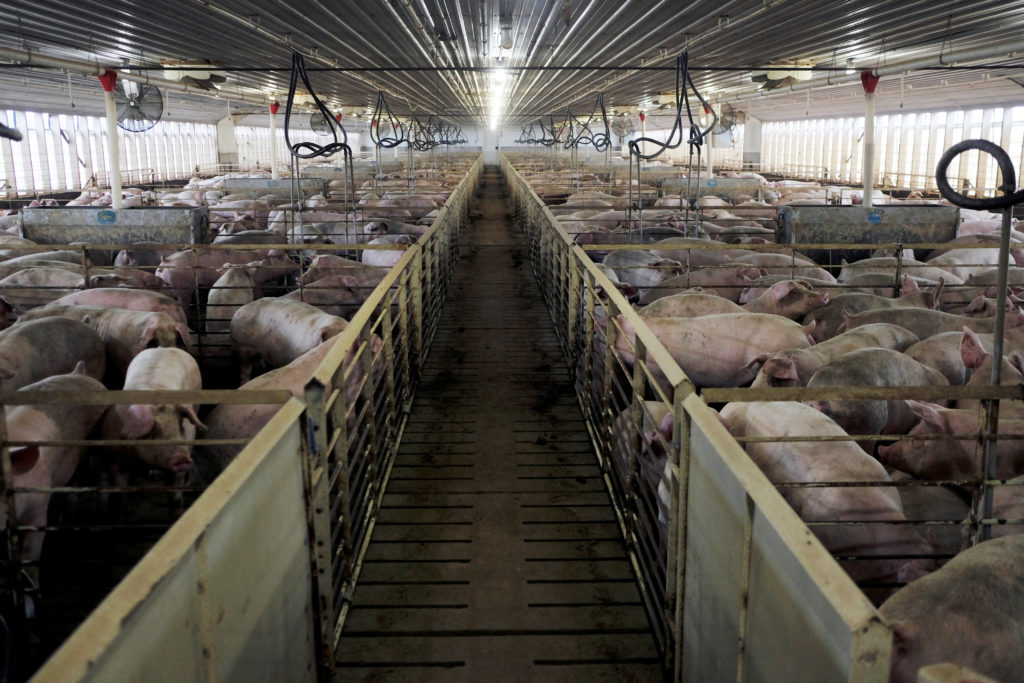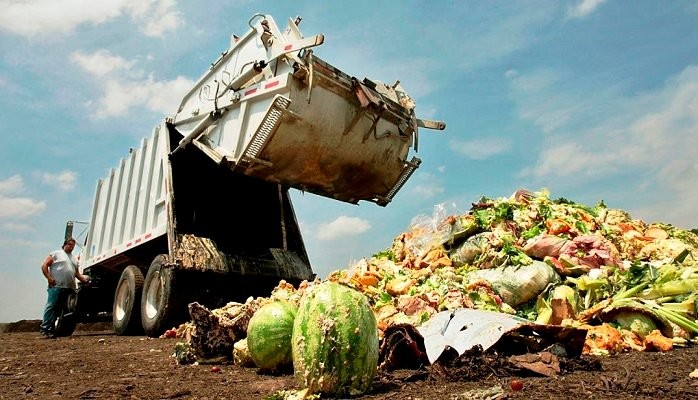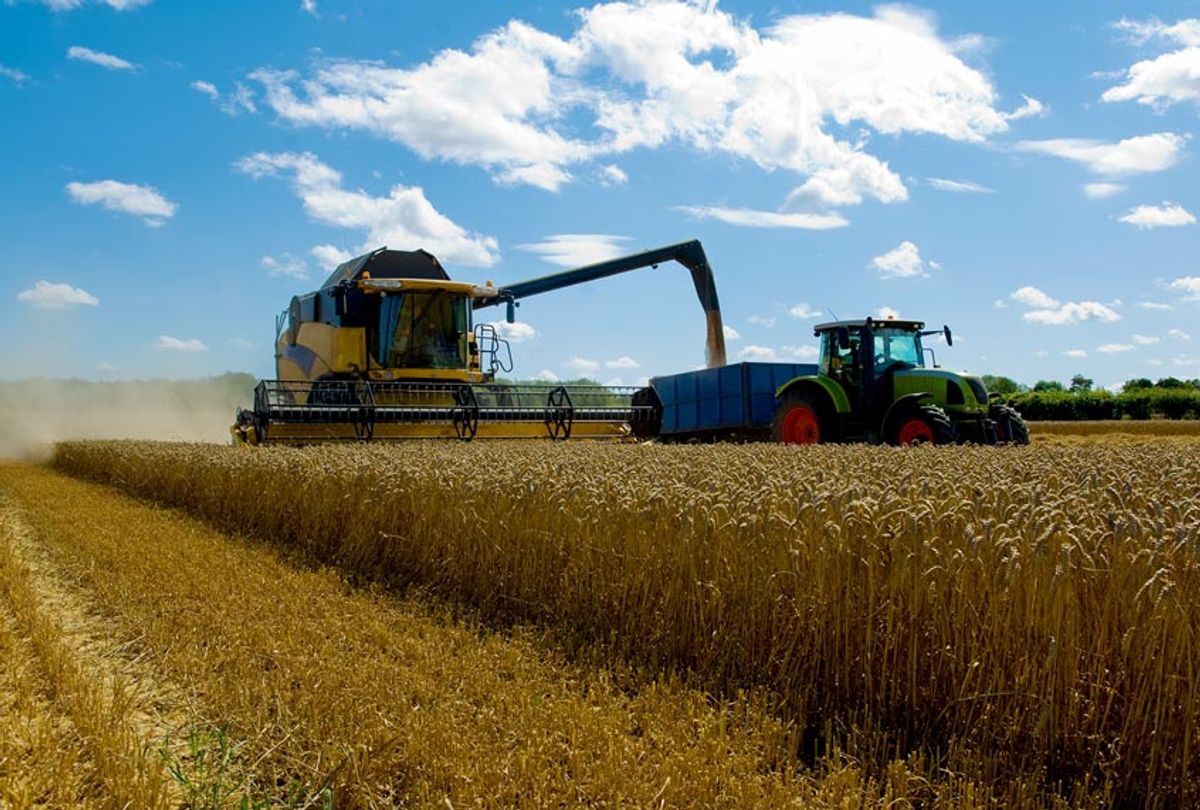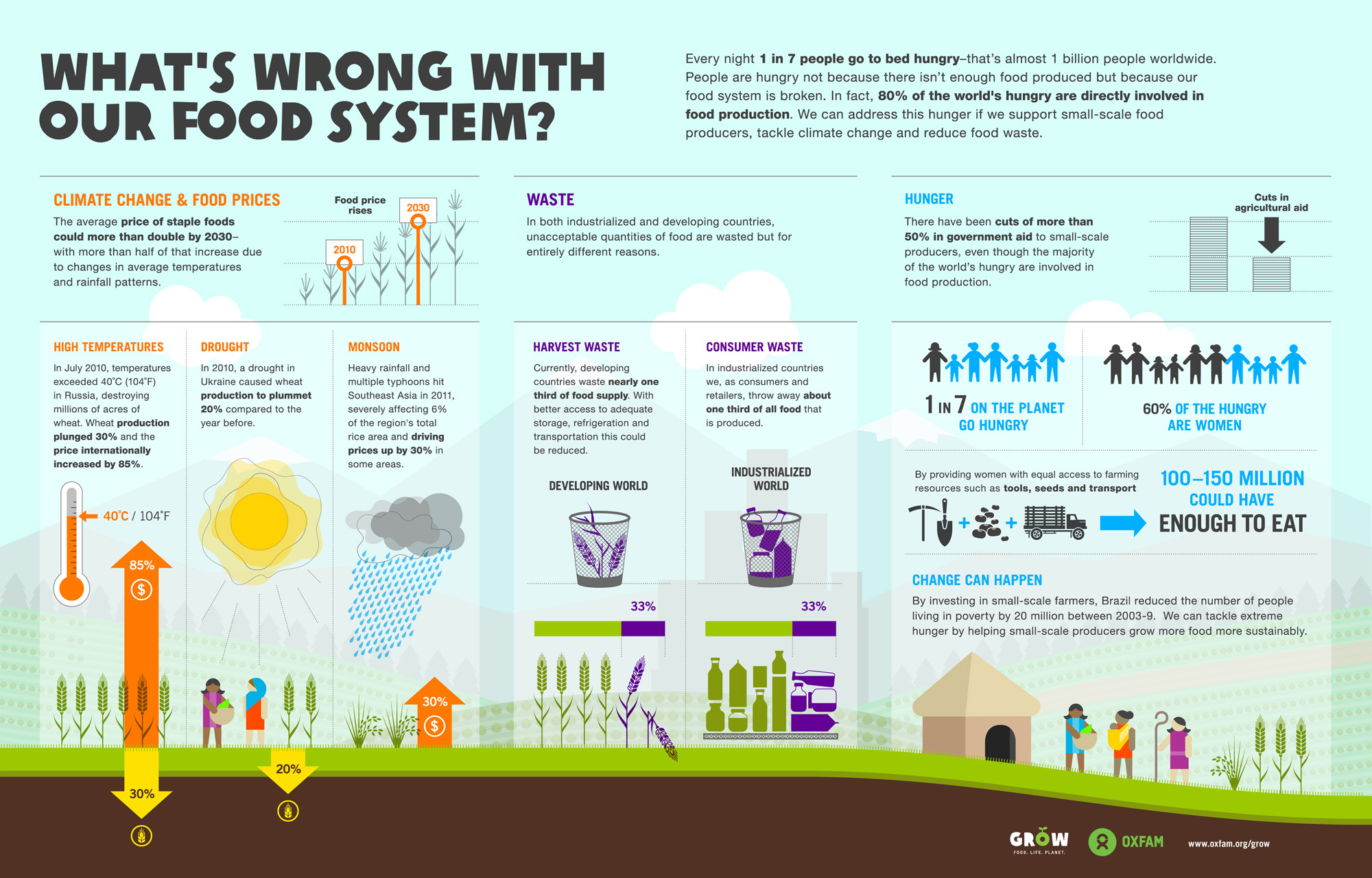This is the 23rd installment in a series about extending the Green New Deal to confront multiple global crises. Read Part I (Deconstructing environmental racism), II (Rural renewal), III (Upcycle the war machine), IV (GND manifestos), V (No oil bailouts), VI (No corporate ecocide), VII (Defund the police), VIII (Zero Covid approach: NZ), IX (Finnish equality lessons), X (Denmark stops drilling), XI (Costa Rica rewilding), XII (Indigenous justice), XIII (Free public transport) XIV (No borders), XV (Chile's democratic revolution), XVI (Undermining neoliberal dogma), XVII (Climate Litigation), XVIII (Degrowth), XIX (Bullshit Jobs), XX (Universal Basic Income), XXI (Make Superwealth History) and XXII (Homes for all).
Most of our food is produced by large corporations. In pursuit for profits, they rely on giant monocultures and chemical fertilizers, whose production relies on fossil fuels. In order to fix the climate crisis, we need to rethink how we grow our food in a biodiversity-friendly way that mitigates rather than accelerates the climate breakdown.
But agriculture is also a key battleground for human rights: modern day slavery is rife in the food business, and people who are driven off their lands in the global South are vulnerable for exploitation when they move, including to the global North. This article explores what global justice would look like in the food system.
Exploitation is rife in agriculture
50 million people are trapped in modern slavery – either forced work or marriage – according to the International Labour Organisation. Over 1 million of them are in the U.S.
Agriculture, the service economy, sexual exploitation, manufacturing, construction and domestic work drive today's enslavement. While the U.S. has the largest population of prisoners in the world, many of whom are forced to work (see Part 7), there are also many industries using forced labor.
Mirroring the global trends, agriculture is a key sector. Immigrant workers coming to the U.S. are highly susceptible to forced labor, for example when they’re promised work for good wages. A report by NGO Food Empowerment Project explains:
“The workers are then taken to farms in remote areas where they are forced to work under the threat of deportation and physical violence.“
A large agricultural producer with a large immigrant population is Italy. It has the same per capita rate of enslaved people, 3.3 per 1,000, as the U.S. Many of those who cross the perilous Mediterranean to look for safety or a better life in Europe end up picking fruit and vegetables with no workers' rights – often because they have no rights due to a punitive border regime.
But the problem is not exclusive to rich countries: it is global and often invisible in complex supply chains. The rights group Walk Free suggests that demand from high income countries is a key driver of people's enslavement.
Global injustice drives ecological destruction
Ending forced labor is only the beginning of food justice. A handful of global corporations control the vast majority of food systems to make vast profits, increased by recent inflation.
The roots of this profiting go deeper still: through decades of neoliberal development policy, countries in the global South have been kept in a position where their only economic activity is low-value primary production such as agriculture, competing against heavily subsidized producers in the global North.
Selling land, often the only option left, increases the vicious cycle of economic dependency. Yet the problem goes deeper than the market for food, as bets on future food prices are sold on the financial markets, making hedge funds billions annually from speculation.
Ecologically, too, the food system is unsustainable. Rich biodiversity is cleared to make way for farms and grazing cattle—think of the deforestation in the Amazon or Indonesian palm oil plantations. With less biodiversity comes less resilience to climate change.
Climate emissions are also directly caused by the petrochemical-heavy parts of the food industry, such as fertilier production, and the impoverishment of soil quality so that it retains less carbon.
With less fertilizer use, soil has the potential to store far more carbon, a pathway to vastly reduce global heating. This is according to Jacqueline McGlade, former chief scientist at the UN environment programme and former executive director of the European Environment Agency.
Equally important to mitigate against climate change, we need to reduce our meat consumption, especially beef, a major source of the potent greenhouse gas methane. The meat industry is also deeply exploitative of its workers, which came to the public's attention during the Covid pandemic, when Covid-19 tore through migrant workers in German slaughterhouses facing horrific working and living conditions.
Monocropping is further ecocide, with crops grown for sale on international markets, rather than sold to local peoples. Farmers and growers the world over reap from the collective knowledge of their ancestors, but in recent decades, seeds and knowhow have been increasingly privatized as intellectual property owned by large corporations. Seeds are genetically modified to ensure they need fertilizers or do not reproduce, ensuring the continuity in the market.
And of this food that is produced globally, 30-40 percent is wasted before it gets to market, thanks to complicated supply chains serving supermarkets.
There are alternatives
The food system is so broken, there are many means to end its worst excesses. France offers one way, forcing supermarkets not to throw away edible food.
Banning food speculation would stop hunger for many. We also have limited power as consumers, for instance avoiding meat; buying local and ethical food; going organic; reducing processed foods (high in palm oil, etc.) and growing your own.
These are important—yet also limited—strategies. These supposed “choices” are too expensive for most people. We need structural change so all food is ethical: healthy for us and the planet.
The concept of food sovereignty was developed by the peasant and small growers organization Via Campesina. Food sovereignty is about giving autonomy to people, communities and nations to define their agricultural policy.
It means ending neocolonial land grabs and the privatization of intellectual property rights. It is also about recognising and rewarding the people who do the work to produce food, especially women, who are the most exploited today.
It requires a rejection of neoliberal thinking, where profit and corporate power is dominant in international negotiations. So, for instance, local and regional food production becomes the priority, not producing cash crops.
To create this change, we can combine our limited consumer power with solidarity through means such as community gardens, food buyers' cooperatives, community farms and other neighborhood-based initiatives. Moreover, food sovereignty is about building resistance to corporate power at the same time as building ethical and healthy alternatives.
Justice in the food system means ending the vicious circle of capitalism. It drives climate change, which in turn drives small-scale farmers off their lands, turning them into a ready supply of cheap labor to find work for big corporate owned farms, which in turn burn even more carbon.
Or it forces them to leave their countries altogether, making them vulnerable to exploitation and enslavement far from home. As in so many areas, when it comes to food, social and ecological justice go hand in hand. It requires making sure people can make a living off their lands.



















